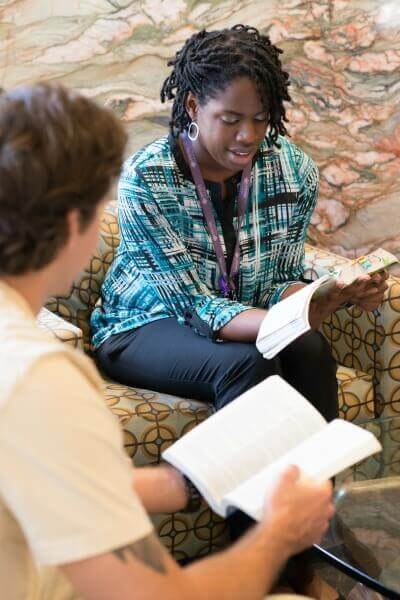

By: Lakeview Health
By: Alexis Thomas, M.S., LMHC, CTRS Recreation Therapist
The Purpose and Theoretical Foundation of Recreation Therapy
Recreation Therapy helps foster an atmosphere where patients can learn to incorporate health leisure activities into the recovery plan. Research has illustrated that people in recovery participating in healthy physical activities and meditation have greater rates of abstinence and self-growth. Persons who have the disease of alcoholism or addiction have significant issues with their leisure. Studies have shown that alcoholics are less satisfied with leisure than their non-dependent peers (Smolensky, Martin, Lorimor, 1980). They are also more likely to be “work addicted” and passive in their leisure pursuits (Simpson, Crandall, Savage, Pavia-Krueger, 1981; Sessoms and Oakley, 1969; Sheridan, 1976). Leisure itself is problematic for addicted persons, due to the barriers their disease progression creates. The leisure education model can be utilized to assist addicted persons to learn what sober leisure alternatives are available to them. By increasing the addicts’ perceived level of freedom, the therapeutic recreation staff can open up a new world of sober leisure choices. Due to their well-established defenses and irrational belief system, leisure counseling intervention is needed to break their dysfunctional leisure pattern. (Pat O’Dea-Evans, SCAC/CTRA)
In Alexis’ Words
“The word recreation is really a very beautiful word. It is defined in the dictionary as ‘the process of giving new life to something, of refreshing something, of restoring something.’ This something, of course, is the whole person.” Bruno Hans Geba A lot of patient’s call the Rec Therapy the “Play Group,” and while that is true, to an extent, it is a group that allows patients to remember what it means to live, laugh and enjoy life. One of the biggest triggers of relapse people share are bouts of boredom and lack of planning. My goal as a Recreational Therapist is to arm patients with an arsenal of tools to combat boredom, increase awareness of triggers, and learn how to embrace life as it comes. One of my favorite things to hear after a task or activity is a patient commenting on how they were having fun sober. “I never thought I could actually laugh and have fun in sobriety.” That’s what Recreation Therapy Offers. I am privileged to daily work with people on learning how to live and enjoy life.





